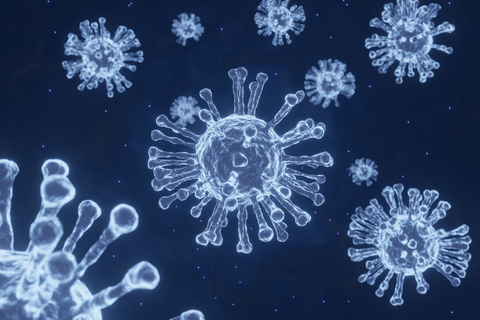*** Purchase peptides at https://centurionpeptides.health/ ***
The buzz around BPC-157 (Body Protection Compound 157) has been growing steadily in recent years, with everyone from professional athletes to individuals with chronic gut issues turning to this peptide for its remarkable healing properties. As discussed in our latest Frontline Health Podcast episode, this synthetic peptide derived from a protective protein in gastric juices has shown impressive potential for accelerating recovery and promoting regeneration across multiple body systems.
What makes BPC-157 particularly interesting is its versatility. Research indicates it can help heal muscles, tendons, and ligaments while also showing benefits for nerve regeneration and gut lining repair. One of its key mechanisms appears to be angiogenesis—the formation of new blood vessels—which increases blood flow to injured areas, delivering more healing factors precisely where they're needed. This explains why so many people report improvements in mobility, decreased pain, and faster recovery times after incorporating BPC-157 into their health regimens.
The science supporting BPC-157 presents an interesting dichotomy. While robust animal research demonstrates significant benefits for healing torn tendons, reducing gut inflammation, and even regenerating neurons, human clinical trials remain limited. However, substantial anecdotal evidence from users reporting improved shoulder and knee function, faster healing of both old and new injuries, and restored range of motion cannot be ignored. This pattern of strong animal research combined with consistent user testimonials suggests BPC-157 likely offers genuine therapeutic benefits, despite the current lack of large-scale human studies—a reality that reflects the lengthy and expensive process of bringing new compounds through the full clinical pipeline.
Safety considerations should be paramount when exploring BPC-157. Thus far, no serious side effects have been reported, and it appears to be non-toxic without interfering with hormone levels. However, since it's not FDA-approved, source quality becomes critically important. The market is unfortunately flooded with counterfeit products, some misleadingly labeled as "BCP-157" or lacking ingredient transparency. A key indicator of fake products is suspiciously low pricing—authentic BPC-157 supplements typically cost no less than $70 per bottle. Always verify product authenticity by checking for clear labeling, third-party testing, and purchasing only from reputable suppliers.
BPC-157 can be administered in two primary ways: subcutaneous injection or oral capsules. While injections may offer more direct delivery to the bloodstream, oral supplementation provides greater convenience. Some research suggests that oral administration may particularly benefit gut issues, while subcutaneous injection might be more effective for musculoskeletal healing. Centurion Health has developed an oral BPC-157 supplement enhanced with arginine and bioperine to improve absorption—a thoughtful formulation designed to maximize the peptide's bioavailability without requiring injections.
The most appropriate candidates for BPC-157 supplementation include those struggling with chronic injuries, post-surgical recovery, and various gut issues. However, it's essential to view this compound as part of a comprehensive approach rather than a standalone solution. A recommended protocol typically involves taking BPC-157 for approximately 12 weeks, followed by a one-month break to allow the body to readjust. Ideally, after this cycle, the body will have healed sufficiently that continued supplementation becomes unnecessary. As with any health intervention, consulting with a knowledgeable healthcare provider—particularly one versed in functional medicine and familiar with peptide therapy—is strongly advised before beginning BPC-157.




